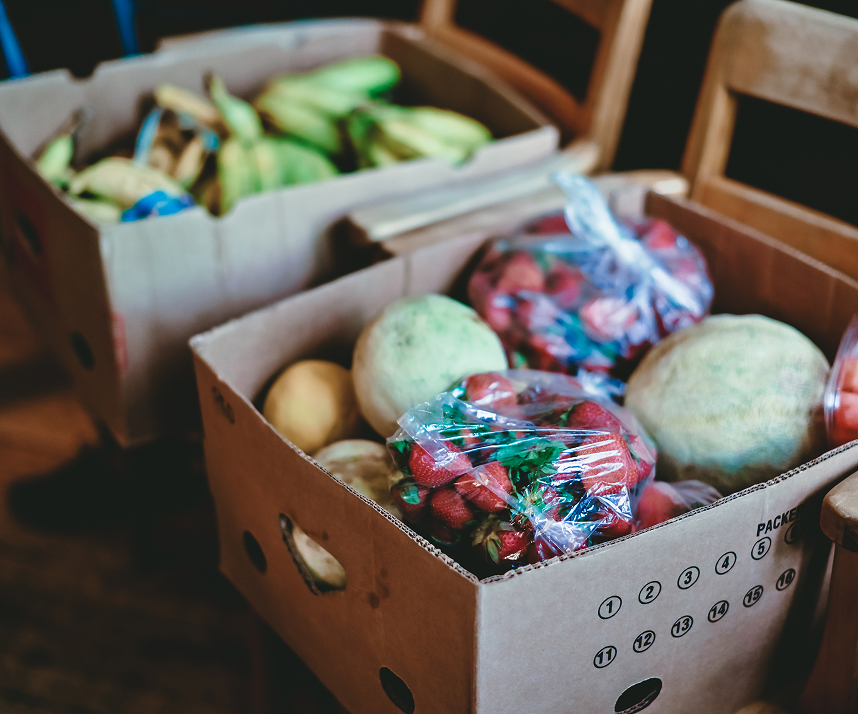Between tradition and consumption, my heart is beating!
- Opinion
Écrit par Marie-Pier Ethier
5 December 2023
When I was young, cherry pie was a must-have treat for the holidays. As amazing as it might be, she HAD to find herself on the dessert table, among the essential bûche, the decadent cream sugars and coconut macaroons, in addition to the butter sablés, the two choices of ice cream, the sugar pie… After an equally heavy main course, it was a lot of desserts.
Too much, perhaps?
“It only happens once a year!”
But isn’t there the spirit of the holidays? Abundance, rich flavors, comforting and exceptional dishes… Everything you can do without thinking too much because “it only happens once a year”?
In fact, this abundance is less glittering than the packaging it is dressed in; Zero Waste Canada informed us in 2017 that the amount of all categories of waste increased from 25% to 45% just before and during the holiday season.
This obviously includes consumer goods intended to be offered as gifts, but also the remains of our festive menus that we sometimes have trouble valuing in the days that follow; it must be said that the “meal prep” and the missions “vide-frigo” are not the most popular activities on this last routine holiday, which for many people is the holiday season.
Let’s be honest, who cooks a pad thai the day after Christmas to save the remains of the traditional shrimp wreath?
“But that’s the tradition!”
Traditions are a delicate subject because they are more than mere habits; they are a legacy usually filled with happy memories, promises of good times and anchored in continuity. Basically, it’s reassuring, and it’s perfect as well! Having this annual appointment with the rituals is quite healthy and even necessary. It is also interesting to remember where some of these practices come from and why they have taken root in our homes… and especially how they have evolved!
Indeed, far from being immutable, traditions are constantly challenged, revisited, revitalized and adapted according to many factors. These include industrialization and the influence of advertising, which have continuously shaped our mores (for better or worse…) since the end of the 19th century. As a result of trends, modernization and various socio-historical contexts (wars, demographic changes, economic fluctuations, etc.), certain foods and commodities have been promoted to the forefront, featured in recipes, while others have slipped away from the shelves and never returned.
Where the problem is when we use the “quasi-sacred” character of some dishes that are said to be traditional to justify a share of waste, and this, most of the time involuntarily! Whether it’s a remnant of that secret and very (too) precise ingredient we had to buy to cook Aunt Gertrude’s 1943 sandwich bread recipe, or the pint of eggnog that tastes more nostalgic than magic once Christmas is over, It is by sometimes wanting to do good that the famous waste awaits us.
“Then what?”
Food waste is rarely intentional. The good news is that it can be easily avoided, if one accepts to honestly question certain habits.
Starting by simply better assessing the amount of food needed for the festivities is already a very good first step! Knowing that Simon and Simone are not coming with their blonde-boyfriends children this year, maybe we could let the puff-cake entrance? So we don’t have to figure out what to do with the leftover stuffing, thank you, good evening!
Then, if the number of guests remains uncertain until the last minute, more flexible planning is required. In this case, one can select wisely (and even adapt) recipes composed of ingredients from which one will be able to use the remaining ones. Thus, we avoid the bottom of bottles that will linger in our kitchen until we are tanned and throw them away, or, for the less perishable (and the most patient among us!), until next Christmas!
Finally, it should not be forgotten that most traditions were created by taking into account the means of the edge. The results could therefore vary according to the ingredients available, most often seasonal, or of which one had the possibility to make reserves. Quebec is full of tasty berries in the summer season, why not take the opportunity to freeze them and come back when it’s time to cook a delicious pie (instead of cherry pie in cane, for example…)?
* * *
Each household is given the gift of perpetuating the traditions that animate and resemble them, year after year. Without condemning everything or pointing fingers (and especially not throwing it in the trash!), many small gestures can allow us to celebrate these moments while being careful to invite food waste to our parties this year! Good preparations!

